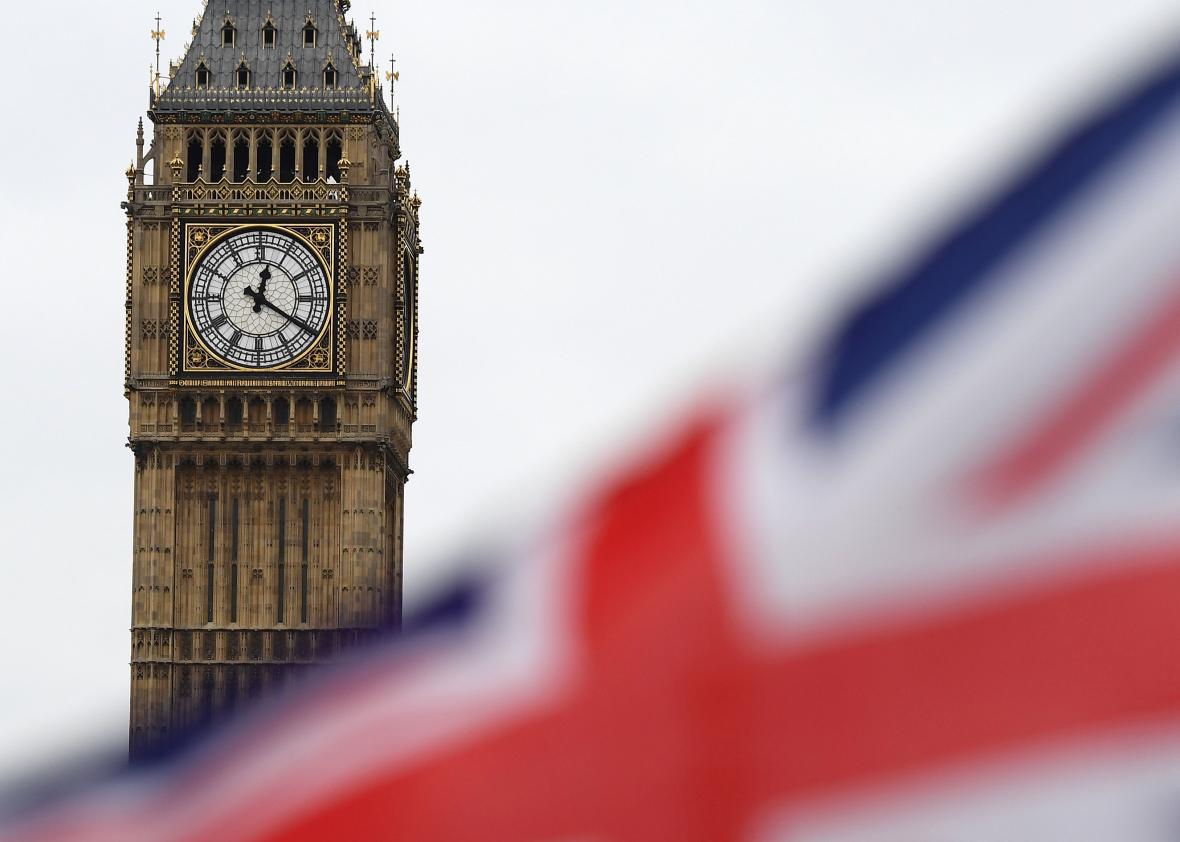An exception to a rule often illuminates the rule’s essence. Take the rape exception to abortion restrictions. If abortion is what opponents say it is—the killing of a human being—then it’s not clear why the circumstances of conception should affect its legality. But if abortion restrictions are also about punishing women for sexual behavior, then a rape exception makes perfect sense: If it’s not her “fault” she got pregnant, it’s only fair that she should be exempt from punishment. (For what it’s worth, some conservative politicians now oppose such exceptions. Points for consistency.)
There’s a similarly transparent logic at work in a cruel welfare policy that went into effect last week in the United Kingdom. The new policy limits tax credits to a family’s first two children. Any children beyond the first two will not be eligible for the credit, which could cost those larger families £2,780 a year, according to one estimate—about $3,500. If a subsequent child was conceived through rape, however, the family may receive the additional tax credit.
The policy itself is disturbing on its face: More than 870,000 families with more than two children claimed tax credits in 2014-15, and one research group estimates that 200,000 children will be at risk of falling into poverty once the new policy is fully implemented. Family size in England has been shrinking for years, although the number of large families has also been on the rise in recent years thanks in large part to immigration. One is tempted to surmise that a policy punishing large families may have something to do with that latter trend! But one would be speculating, of course.
The rape exception was mentioned by policy-makers from the start, but it was only last week that it became clear how the government would adjudicate such claims. Last Thursday, the Department for Work and Pensions published a form that asks women who claim the “non-consensual conception exemption” to provide the name of the child or children conceived by rape, and sign a declaration that they do not live with the child’s father.
The policy and the exemption have received harsh criticism from a wide variety of sources since they were announced in 2015. One member of parliament called the exemption implementation “inhumane and barbaric.” Feminists have pointed out the cuts disproportionately affect women. A coalition of the U.K.’s largest Christian denominations and Jewish groups pointed out that the policy discriminates against people whose religion compels them to have larger families. A United Nations committee on children’s rights asked the British government to explain the policy last year, because of concerns about women having to somehow prove they were raped.
The rape exemption is particularly cold-blooded. Imagine having to write your child’s name on a government form that stated she was conceived by rape in order to receive basic government benefits. The fact that women must also swear they don’t live with their rapist punishes women who have not yet found the resources to escape an abusive relationship.
The rape exemption also exposes what should be a fundamental conflict between fiscal conservatism and social conservatism. Fiscal conservatives are happy to slash government spending by nudging women to have no more children than they can afford to support on their own. Social conservatives, on the other hand, view children as “a blessing rather than as a burden,” as the religious coalition that opposed the policy put it in 2015. “A third, fourth, or fifth child is no less precious than the first. Anything which sends the implicit message that a child is unwanted, unvalued or superfluous should be strongly resisted.” Of course, it doesn’t always work out that way, since many social conservatives also have an interest in corralling women’s sexual activity. Still, a policy that overtly discourages child-bearing—and perhaps even encourages abortion—ought to give social conservatives pause.
Finally, the policy also relies on “the old stereotype of the feckless poor, who breed for benefits,” as sociologist Pam Lowe pointed out in 2015. That stereotype relies on the notion that responsible people are able to perfectly control their fertility, and that they will precisely calibrate the number of children they have to their current and future plans and financial capabilities. Life, of course, is often more complicated than that. Cherie Blair, the wife of former prime minister Tony Blair, confessed in her autobiography that she conceived her son Leo quite by accident during a visit to the Queen’s vacation estate in Scotland in 1999. During a previous trip there, she had found her bags unpacked for her by staff when she was out of the room, so she was too embarrassed to bring contraception with her after that. Leo was born nine months later. He was her fourth child.
